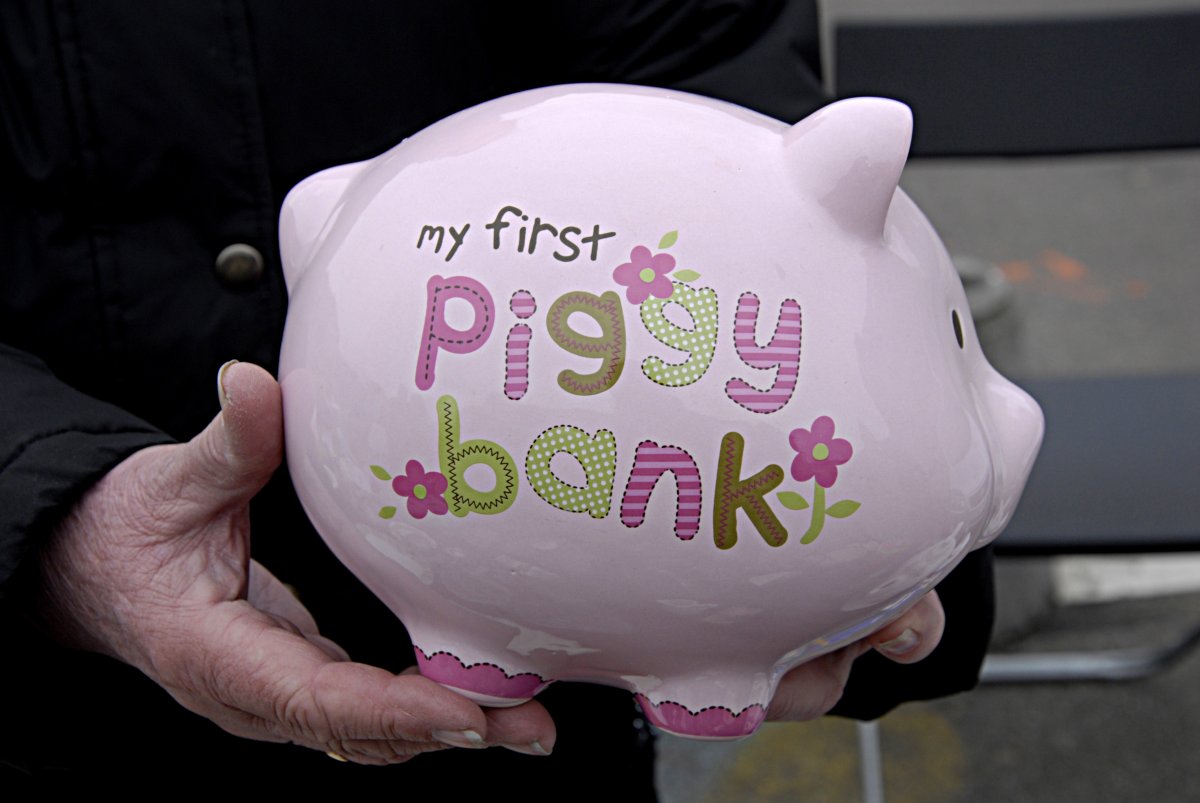In the third grade, I traded my desk buddy a highlighter for her used ChapStick, sheared the top off with a paperclip, and then flipped the "new" ChapStick to another kid in the class for $1. While a bit unorthodox, this was my first real introduction to personal finance. That $1 meant I got a cinnamon sugar churro at snack time and my parents got a slightly alarming, albeit comical, phone call from my teacher. That experience ended up teaching me more about business than the next decade of school, and coincidentally, my first "big girl" job would be as a trader on Wall Street, this time buying and selling stocks instead of highlighters and ChapStick products.
As an adult, I often find myself in conversations with friends about what we didn'tlearn within the four walls of the classrooms. Things like taxes, opening credit cards, budgeting, salary negotiations, student loan debt, and buying a home. What do all of those things have in common? Money. It's shocking to me that personal finance is not required as part of the U.S.' federally mandated curriculum, especially given the amount of people who wishit was.
Despite how intimidating the world of finance may seem, it doesn't have to be that complicated. TikTok creator Allera Padgett went viral last year for her video showcasing how she teaches her kindergarten class about money. In her classroom, students have jobs that earn them a salary, and they can also earn bonuses for doing well on homework and tests. However, they don't get to keep their full paychecks—they have bills to pay! They pay rent for the classroom and chair, but get to spend their extra money on goodies at the class store.
When you implement an approachable learning system early, it increases students' financial curiosity by introducing them to scenarios they'll face in the future. How do you prioritize bills after you receive a paycheck? What happens if you want to buy something, and you don't have enough money? Is it possible to earn money in a passive way? These scenarios encourage students to ask questions, which can prompt discussions about more complex topics like budgeting, saving, and investing.

And money does impact kids! Studies have shown that "teenage financial literacy is positively correlated with asset accumulation and net worth at age 25." Conversely, low levels of financial literacy are correlated with negative credit, higher borrowing rates, mortgage delinquency, and home foreclosure. The data is clear that when kids learn about managing wealth, they're more likely to have it.
But whose responsibility is it to teach kids about money? With no federal mandate, schools are not required to offer financial literacy classes. If students aren't lucky enough to have teachers like Allera Padgett, or guardians who teach them money skills, they don't have many places to turn. So where do curious kids go to learn this information? The same place they go for literally everything else. The internet. In particular, a young person's favorite platform—TikTok. While I'm certainly not suggesting teachers let their students scroll through TikTok during class time, I would encourage teachers to think of TikTok as a resource, and adapt content to real-life classroom exercises.
Recognizing the role that technology plays in students' lives is integral. Teachers who embrace technology are able to engage their students, and create more memorable means of learning. However, social media for learning isn't fool proof. While social media can be home to thoughtful, helpful content, there is also a hefty amount of misinformation circulating. If teachers know their students are going to be looking to short form videos for help, they can create a repository of resources that they themselves have vetted as accurate and safe for their students.
But it's not entirely fair to place the burden of teaching financial literacy on teachers, especially when they're not being paid to do so. Without sounding cliché, financial literacy really does take a village. As parents and families, we should encourage healthy habits like talking about money, budgeting, paying bills on time, and saving for financial goals. Even if we ourselves feel less than confident in our financial journeys, the internet now provides unlimited resources to help us and our little ones become more knowledgeable about money.
While financial literacy itself is essential, it's also crucial to teach critical thinking skills, ethical decision-making, and responsible consumption, as these factors will impact day to day decision making as these students become adults. Whether it's through fake classroom money, TikTok, or just a chat at the dinner table—any attempt at financial education is better than none.
If we meet students at their level and cater to their interests, the journey to financial fluency can start early and be just as exciting as trading a highlighter for a ChapStick.
Vivian Tu AKA "Your Rich BFF" is a debut New York Times bestselling author, former Wall Street trader-turned-expert, personal finance educator, public speaker, and entrepreneur.
The views expressed in this article are the writer's own.
Uncommon Knowledge
Newsweek is committed to challenging conventional wisdom and finding connections in the search for common ground.
Newsweek is committed to challenging conventional wisdom and finding connections in the search for common ground.
About the writer
To read how Newsweek uses AI as a newsroom tool, Click here.






